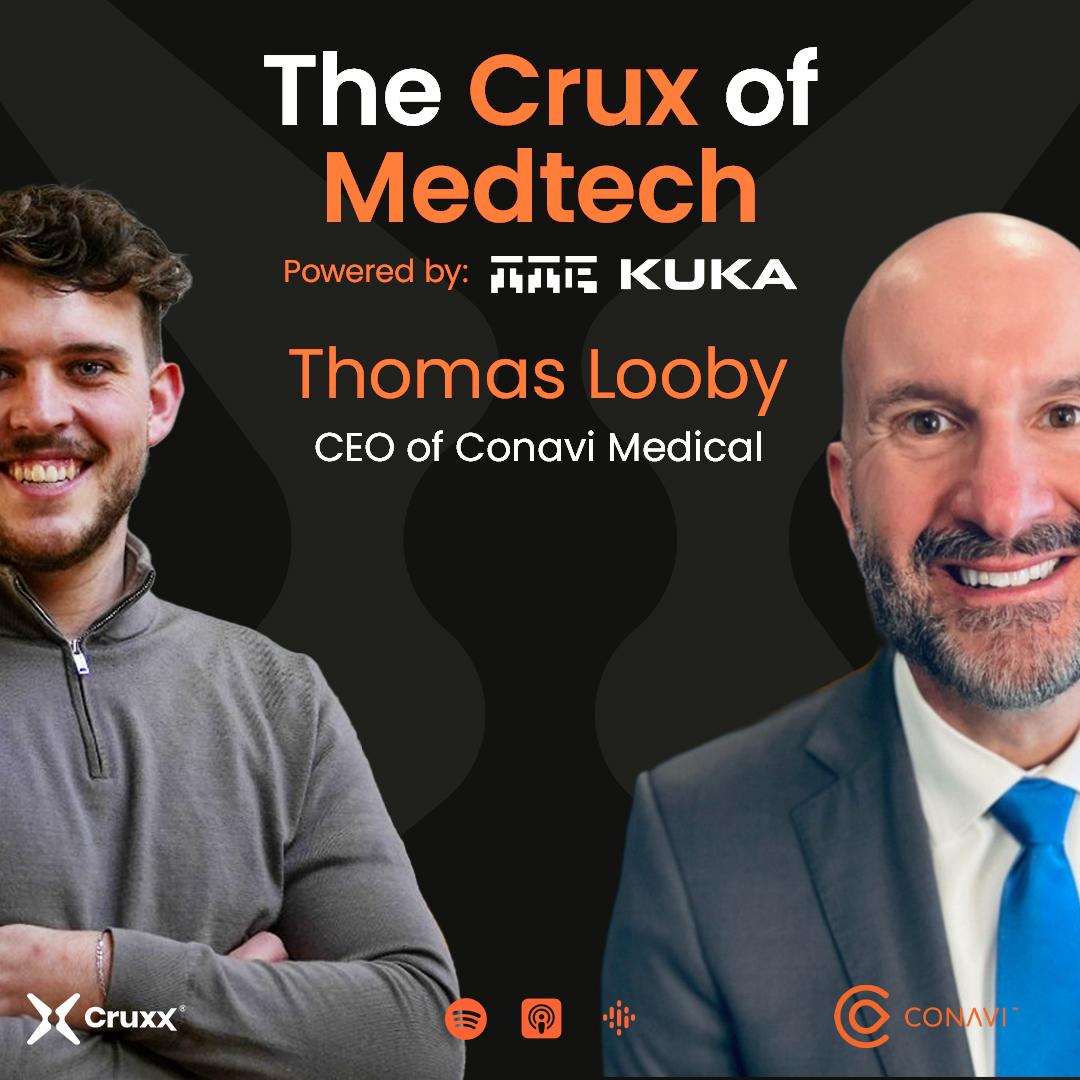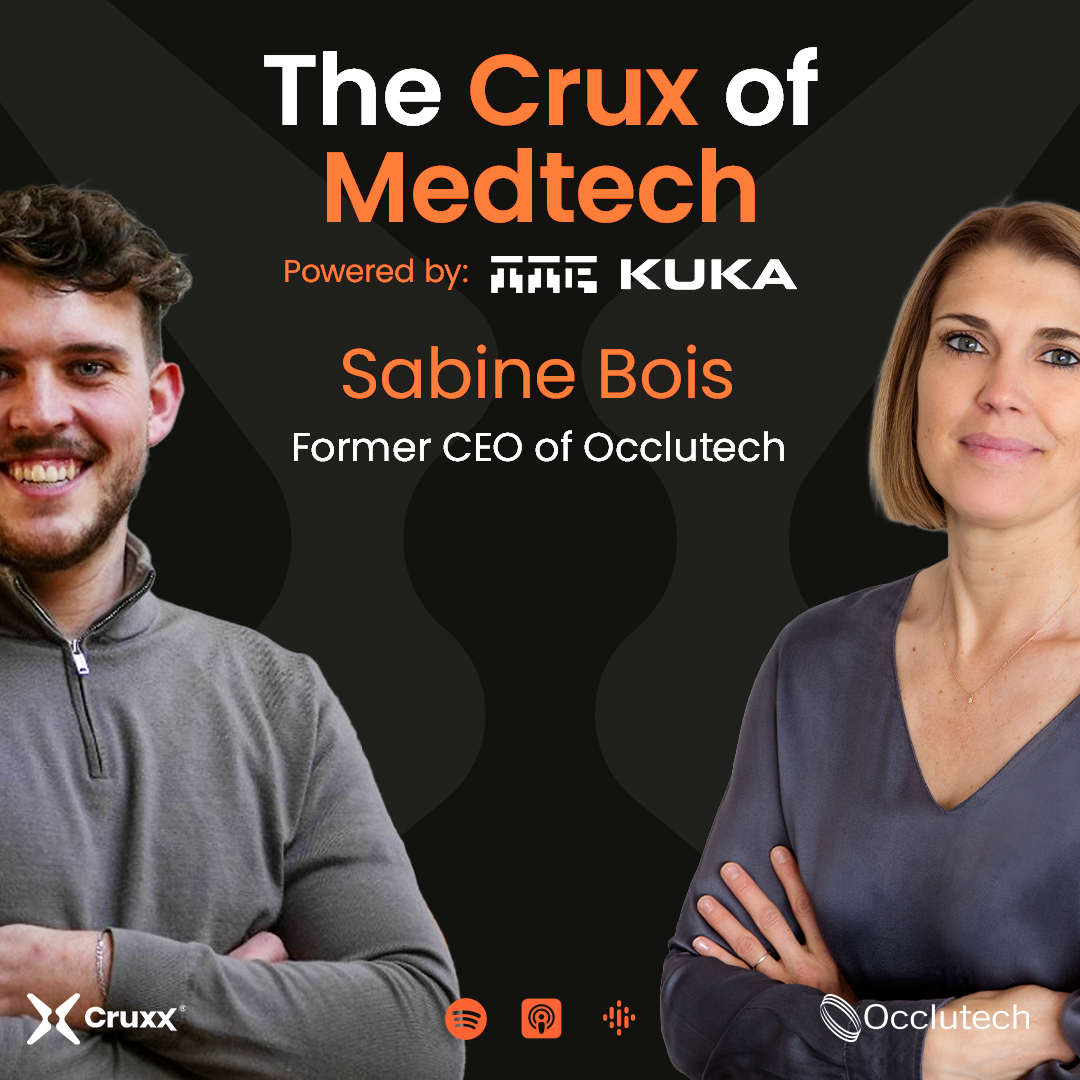Dual-Modality Imaging That Rewrites PCI Outcomes with Thomas Looby

What’s Next for MedTech?
-Dr. Dylan Attard, CEO, MedTech World
The healthcare industry is entering a period of profound transformation. Once marked by incremental progress, today’s medical technology landscape is evolving at an unprecedented pace. This momentum is not driven by a single innovation, but rather by the convergence of emerging technologies, increasing patient expectations, and a shifting global investment environment. The question is no longer what lies ahead for MedTech, but how quickly we can adapt to the changes already underway.
Robotics Expanding Beyond the Operating Room
One of the most striking developments is the expanding role of robotics in healthcare. Traditionally associated with high-precision surgical interventions, robotics is now influencing nearly every aspect of care delivery. According to MarketsandMarkets, the global medical robots market—valued at $16.0 billion in 2024—is projected to reach $33.8 billion by 2029, reflecting a compound annual growth rate of over 16%. This growth is not confined to the operating room. Robotic systems are being deployed for rehabilitation, delivering personalized therapy and speeding up patient recovery, while automation technologies are streamlining hospital logistics, pharmacy operations, and infection control. Far from replacing clinicians, these tools are designed to extend their capabilities, reduce strain, and improve clinical workflows.
AI and Connectivity: Driving Intelligent Care
Artificial intelligence is rapidly becoming an integral part of healthcare’s digital backbone. Initially applied to diagnostics, AI is now enabling more personalized treatment planning, facilitating earlier detection of disease progression, and accelerating the development of new therapies. With a market forecast to grow from $26.69 billion in 2024 to over $613 billion by 2034, AI's integration into medical practice is expected to deepen across both clinical and operational domains. Notably, AI is also playing a critical role in enhancing robot-assisted procedures, further reinforcing its presence within the MedTech ecosystem.
Connectivity is another area seeing exponential growth. The rise of the Internet of Medical Things (IoMT) is enabling real-time patient monitoring, remote diagnostics, and continuous data exchange between patients and providers. As a result, interventions are becoming more timely and proactive, contributing to better outcomes. The global IoMT market is expected to exceed one trillion dollars by 2034, up from $242.80 billion in 2024. This growth reflects the mounting demand for integrated, efficient systems that extend care beyond traditional clinical settings.
Personal Health, Precision, and Immersive Technologies
Wearable health technologies are gaining traction by giving individuals greater control over their health. From basic fitness trackers to advanced biosensors, these tools are fostering a more engaged, data-driven approach to personal wellbeing. Virtual and augmented reality technologies are also reshaping clinical education, surgical simulation, and even pain management strategies, bringing immersive solutions into both hospitals and training centers.
Another major frontier lies in precision medicine. Advances in genomics and pharmacogenomics are enabling treatments that align more closely with individual biological profiles, offering improved outcomes and reducing the risk of adverse effects. This shift from a one-size-fits-all approach to highly personalized care is redefining what effective medicine looks like in the 21st century.
Sustainability, meanwhile, is becoming a growing priority across the industry. As awareness of healthcare’s environmental impact grows, many companies are embracing eco-conscious manufacturing processes and circular economy principles. Responsible innovation will not only shape the future of MedTech but also ensure its alignment with broader global goals.
Investment Confidence and Market Consolidation
Despite global economic uncertainties, MedTech continues to attract investor interest. In 2024, venture capital funding surpassed the previous year’s total, reaching $19.1 billion across nearly 700 deals. Investor confidence appears resilient, though more selective, with capital increasingly concentrated in high-impact areas such as digital health, robotics, and AI-driven platforms.
Mergers and acquisitions are also on the rise. The industry recorded 305 M&A transactions in 2024, the second-highest count in a decade. Larger players are actively seeking to expand product portfolios, access new capabilities, and increase operational efficiency. Johnson & Johnson’s $13.1 billion acquisition of Shockwave Medical is one of several headline deals highlighting renewed interest in consolidation. The uptick in acquisitions of venture-backed companies further suggests that a healthy exit environment is returning for startups.
Alongside investment activity, regulatory engagement is also evolving. Authorities are taking a more collaborative approach with innovators, helping to shape ethical frameworks for the adoption of new technologies while streamlining approval processes. This closer alignment is expected to facilitate faster yet safer go-to-market strategies for emerging solutions.
Looking Ahead: Collaboration Will Define Progress
What emerges from this landscape is a MedTech industry defined not solely by invention, but by meaningful integration. The real opportunity lies in how these technologies converge to improve patient care, empower clinicians, and make healthcare more efficient, accessible, and sustainable.
At MedTech World, we are committed to advancing this future. From November 12 to 14, 2025, we will bring together leaders, startups, investors, and global stakeholders at MedTech Malta 2025. Held in the historic city of Valletta, this three-day gathering will offer attendees the chance to engage with transformative ideas, forge new partnerships, and explore the innovations actively shaping the next era of healthcare.
In a time of accelerating change, understanding the direction of MedTech has never been more essential. We invite you to be part of that conversation.
Discover more about Medical Devices


How to Survive FDA Battles and Boardroom Drama - with Sabine Bois